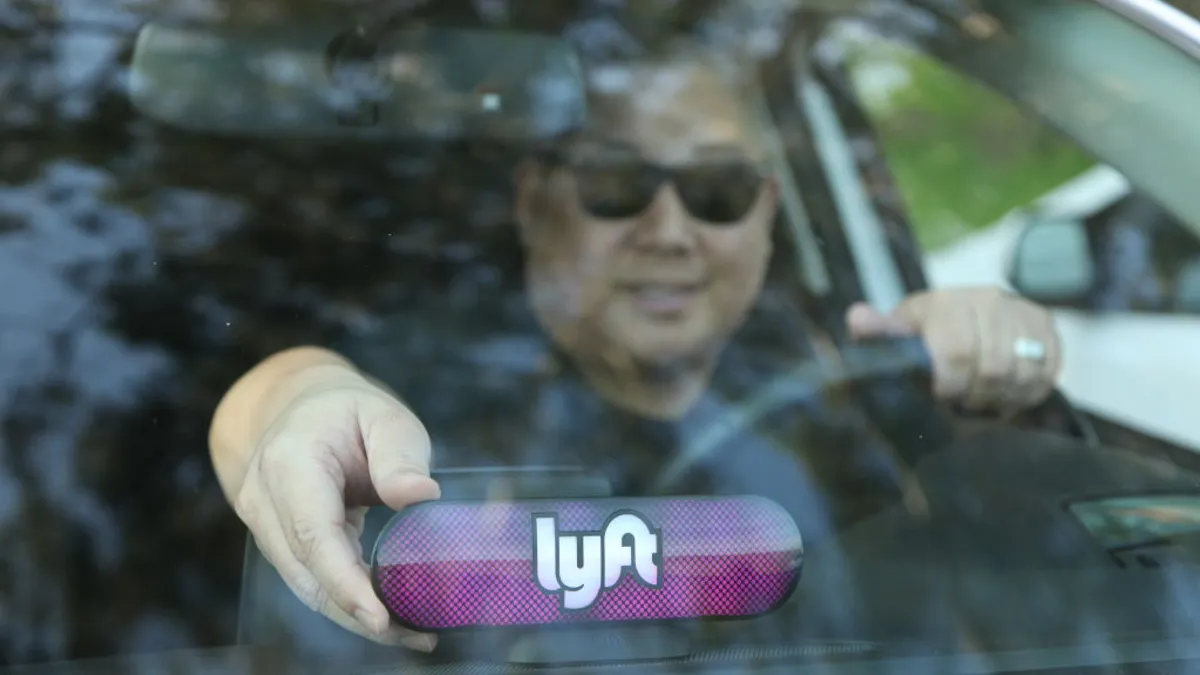As Lyft aims to have a completely electric rideshare fleet by 2030, its drivers have expressed concerns about the range of electric vehicles’ batteries, the company says. It is hoping a new product offering will ease those concerns.
Lyft announced a partnership with Smartcar on Sept. 24 to use the company’s technology to create a “Rides in Range” feature that will only send EV drivers ride requests within their vehicles’ current battery ranges. The tool will also prompt drivers to charge after completing a trip if their battery is expected to fall below 20%.
A press release from the two companies states that range anxiety, or worries about having enough battery to complete a trip, “remains the leading concern for EV drivers on the platform who want to avoid the risk of interrupting trips to charge or struggling to look for chargers during longer trips.”
“Now, our drivers can take on rides without constantly worrying about their battery levels,” Lyft Product Manager Ciara Chow said in a statement. The feature is automatically enabled once drivers connect their EVs to Lyft via Smartcar, a press release says.
Smartcar is a California-based company that offers a platform other businesses can use to develop mobility-centric apps. The company announced an offering similar to “Rides in Range” with Uber in November 2023.
Smartcar CEO Sahas Katta sees the partnerships with Uber and Lyft, which he said has been underway “quietly for some time,” as an important step toward increasing rideshare companies’ EV use and exposing more people to electric vehicles.
However, he acknowledges that more work is needed to overcome barriers to EV adoption. “We've identified dozens of different friction points around just the EV ownership experience and EV driver experience for any ride-hailing company,” but range anxiety tops the list, Katta told Smart Cities Dive.
Katta added that Smartcar has other sustainability-minded projects in the works, including a project that helps EV owners charge at times of day when electricity rates are typically cheaper due to lower demand.
Rideshare companies have faced criticism that their vehicles generate more climate pollution than the trips they replace, some of which could have been done by walking, biking or public transit. A transition to electric vehicles offers one potential solution for these companies to reduce that impact.
Skepticism of EVs among some rideshare drivers mirrors trends among the broader U.S. public. In a 2024 survey conducted by The Associated Press-NORC Center for Public Affairs Research, 46% of U.S. adults responded that they are “not too likely” or “not at all likely” to go electric the next time they purchase a vehicle.
Katta understands consumers’ hesitance to buy an electric vehicle given their novelty and cost, but he hopes exposure to EVs in Lyft vehicles could play a role in making drivers more comfortable with the technology. If someone has been in a Lyft multiple times, he said, they may be more open to an EV for their next rideshare trip or a vehicle lease, rental or purchase.










